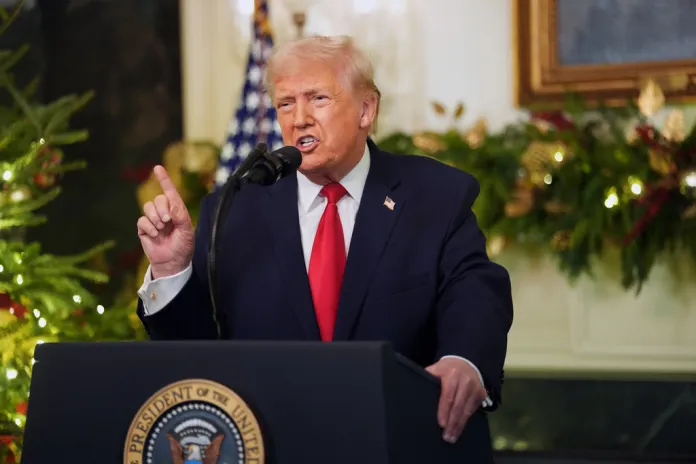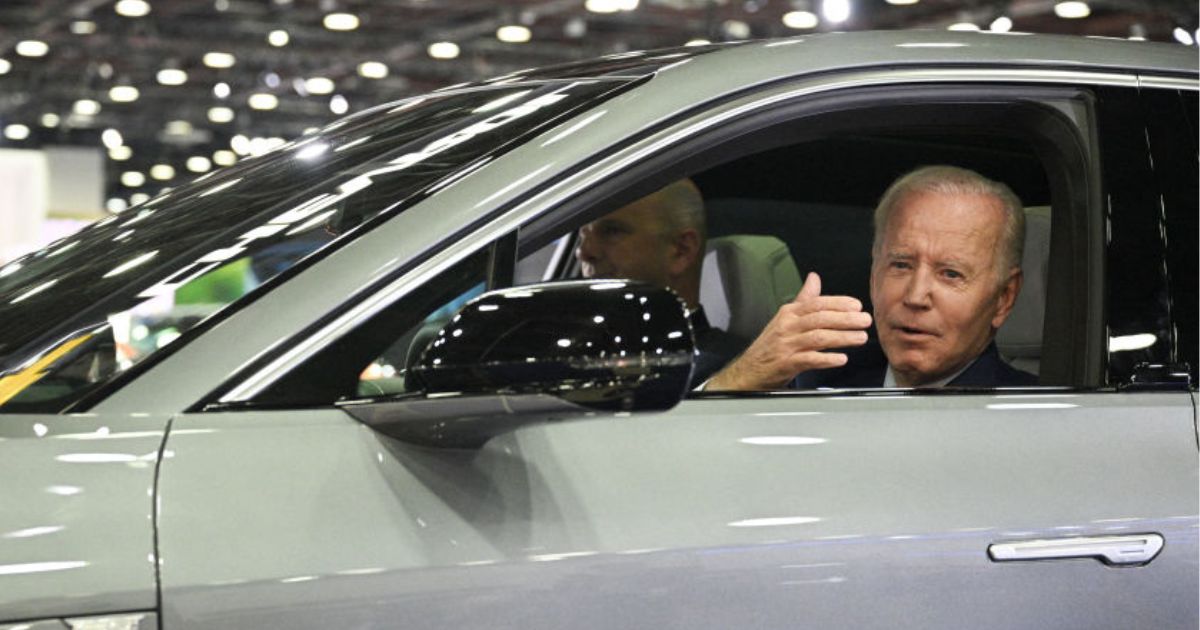SVB collapse: Biden administration boxes itself in on universal deposit insurance
Biden administration officials have put themselves in an awkward position after the Silicon Valley Bank fiasco by vowing to bail out its wealthy clients — without offering any similar assurances to depositors in the rest of the banking industry.
Janet Yellen, Treasury Secretary to the Treasury, tried to straddle the line when she stated that regional banks shouldn’t expect that the Federal Deposit Insurance Corporation will cover losses on all accounts in case of a bank collapse.
SVB COLLAPSE. SORTING FACT IN SILICON-VALLEY BANK GAME
Her comments came as some lawmakers on Capitol Hill weigh the prospect of insuring all deposits — not just the first $250,000 of an eligible deposit, as FDIC rules currently require.
“I just believe that you can’t have depositors worrying about getting their money back,” Sen. Mitt Romney (R-UT) told Semafor Thursday “Anytime that’s going to be the case, you’re going to present some risks to the sector.”
Romney is just one of many lawmakers and policy experts who question the SVB bailout’s implications for the future deposit insurance.
SVB had, for starters, lobbied Congress directly to declare that its portfolio and size were not sufficient to qualify it for one of the banks deemed. “too big to fail,” SVB succeeded in requesting that the requirements on large banks to obtain this designation be removed.
The Biden administration now claims that SVB was too large to fail and could lead to a wider financial meltdown.
And the bank’s unusually wealthy clientele — technology companies, venture capitalists, and start-up founders in Silicon Valley — poses a problem of political optics for the Biden administration.
Biden’s team could be accused of favoring coastal elites over working-class people if a bank similar in size collapses with less well-connected clients tomorrow.
“Had this been a regional bank in Texas specializing in oil and natural gas ventures, those depositors would surely be out of luck,” Wall Street Journal Kimberly Strassel, columnist, speculated this week.
Biden’s administration offered little explanations as to why it believed SVB, Signature Bank (based in New York City), and other institutions could have contributed to the economic collapse.
Biden’s Monday speech about the decision to insure deposits at both banks was limited to what his team had already analyzed. “the impact [SVB and Signature Bank] could have on jobs, some small businesses, and the banking system overall.”
Biden administration officials spent more time assuring public that the banking system is still stable than explaining the reasons for the two bank failures.
Critics suggest they never did.
“By selectively changing the rules after the fact for SVB, the U.S. government is now incentivizing greater risk-taking by corporations in the future, teaching large depositors at smaller banks that they can simply throw money at risky banks without diversifying or conducting diligence, just like many tech startups did here,” Vivek RAMASWAMY, an entrepreneur who is also a Republican presidential candidate, wrote in Newsweek This week’s op-ed.
Ramaswamy claimed that the “normal rules of the road,” The FDIC will only cover $250,000 for every deposit if an executive of a bank makes bad decisions and causes a collapse. This should have been applied to SVB as the government had already determined that the bank was not too large to fail.
2018 was the year Congress decided to eliminate most of the burdensome requirements for banks that are roughly SVB-sized or smaller, because these banks were not deemed systemic risk.
SVB’s failure didn’t appear to be caused by systemic issues. Undiversified customer base made the bank vulnerable to industry downturns. This was especially true for clients in the technology sector. These clients have suffered revenue losses and layoffs in recent months.
Bank executives also decided to put money into long-term investment that they could keep on for years in order make a profit. As interest rates increased, the value of these long-term investments dropped. Clients began withdrawing their money to deal with the tech industry turmoil. SVB sold the investments quickly and at a huge loss to cover the withdrawals.
Experts believe Signature Bank was robbed by the same thing that sealed SVB’s fate: a bank panic. This happens when too many people try to withdraw their funds at once. Signature Bank’s depositors became scared after the SVB disaster that they had witnessed just days earlier.
The proponents of universal deposit insurance believe it can protect against bank runs in the future by eliminating panic that existed before the collapse of both banks this week.
Customers will be more likely to keep their money safe than their bank’s failures. This could allow banks to make amends for mistakes that could prove fatal.
Universal deposit insurance could be available to community banks without connections like Signature Bank or SVB.
Financial advisors reported that thousands of depositors from smaller banks were interested in moving their money to larger institutions, as they are subject to stricter federal regulations and can get a bailout in the event of an emergency.
Thursday’s testimony of Yellen stating that the FDIC would not cover uninsured deposits at smaller banks in the future was likely to worsen the situation.
Both sides of the aisle are interested in insuring deposits or increasing the amount that the FDIC is required to cover.
Sen. JD Vance (R-OH) told Semafor That he is “certainly open to” The idea of universal deposit insurance.
“Everybody understands implicitly that if [JP Morgan] fails tomorrow, its depositors are gonna get a bailout from the federal government,” Vance stated. “Clearly, a $300 million bank in southern Ohio is not going to get a bailout from the federal government.”
Sen. Elizabeth Warren (D.MA), stated this week the FDIC should increase its limit above $250,000, and consider higher levels of small business deposits than individual deposits.
However, universal deposit insurance or significantly increased FDIC protection can still pose a risk.
Bank executives who know that the government will pay their depositors no matter what, could be incentivised to take on greater risks. So-called “The Bank” “moral hazard” Banks could be exempted from the worst consequences of their actions by addressing this problem.
In the event of a disaster, universal deposit insurance could be a way for taxpayers to get huge amounts of money.
Biden’s administration stated that no taxpayer money will be used to bail out Signature Bank and SVB; instead, the FDIC would cover deposits from a fund that other banks contribute into.
But, if there were multiple larger banks that fail in the future, and the government had made sure all depositors would receive their money back, then the Treasury Department might have to bail out the FDIC. That could end up costing the federal government a lot.
The Biden administration seems to be trying to have it all on deposit insurance for the moment.
Thursday’s statement by Yellen stated that “Americans can feel confident that their deposits will be there when they need them,” Echoing the earlier statements of Biden during the week.
Later, however, she admitted that banks won’t necessarily get the same help as Signature Bank or SVB.
CLICK HERE FOR MORE INFORMATION FROM THE WASHINGTON XAMINER
The fence-sitting is likely an effort to prevent stampedes of customers from rushing to their banks to withdraw money that not every institution may have the ability to pay out immediately against the difficult economic backdrop, without committing the Biden administration to a position — universal deposit insurance — that would represent an overhaul of the banking system.
Biden could be under pressure to give a more precise position on FDIC coverage as regulators continue to sort through the wreckage from the SVB collapse.
“Read more from SVB collapse: Biden administration gets in on deposit insurance”
“The views and opinions expressed here are solely those of the author of the article and not necessarily shared or endorsed by Conservative News Daily”
" Conservative News Daily does not always share or support the views and opinions expressed here; they are just those of the writer."




